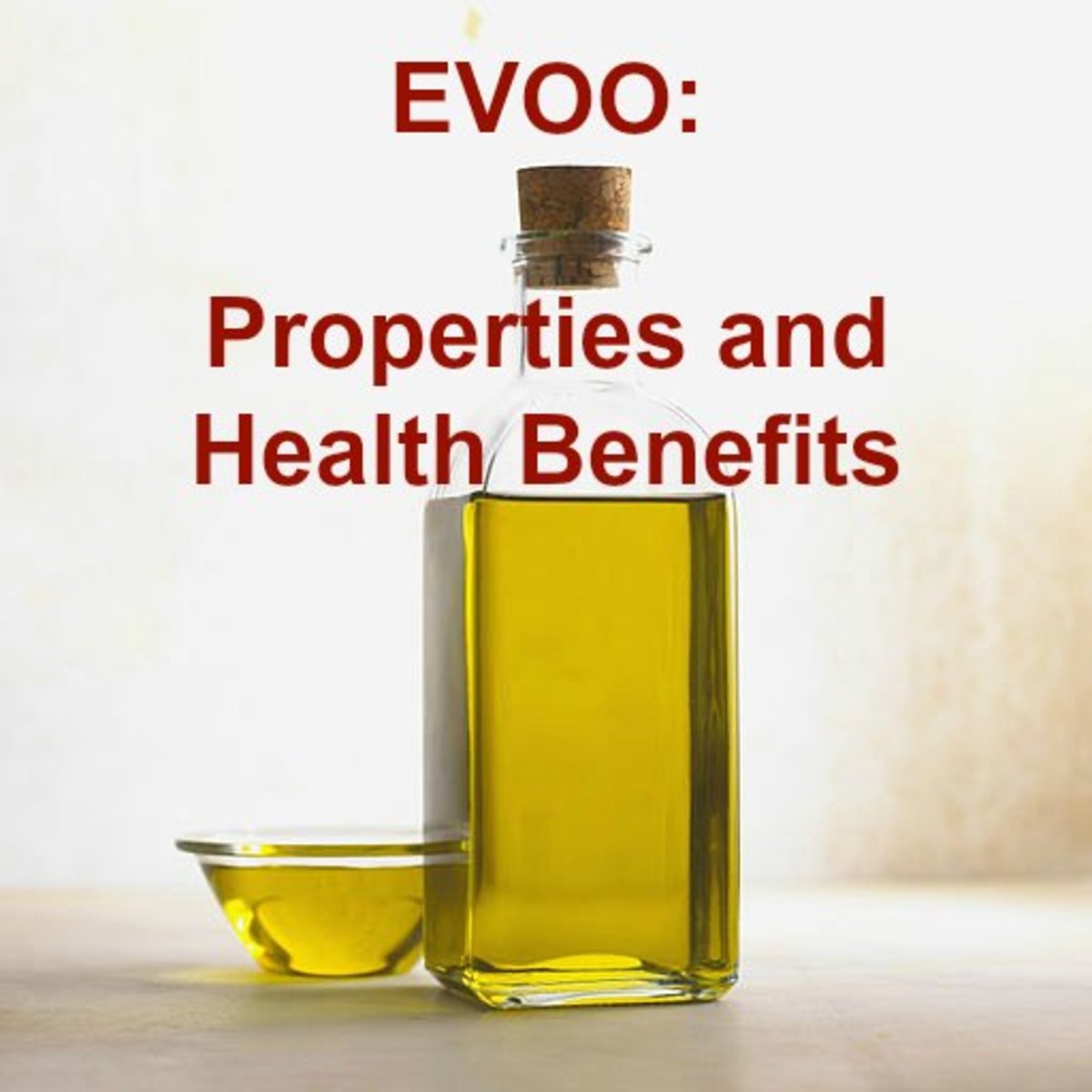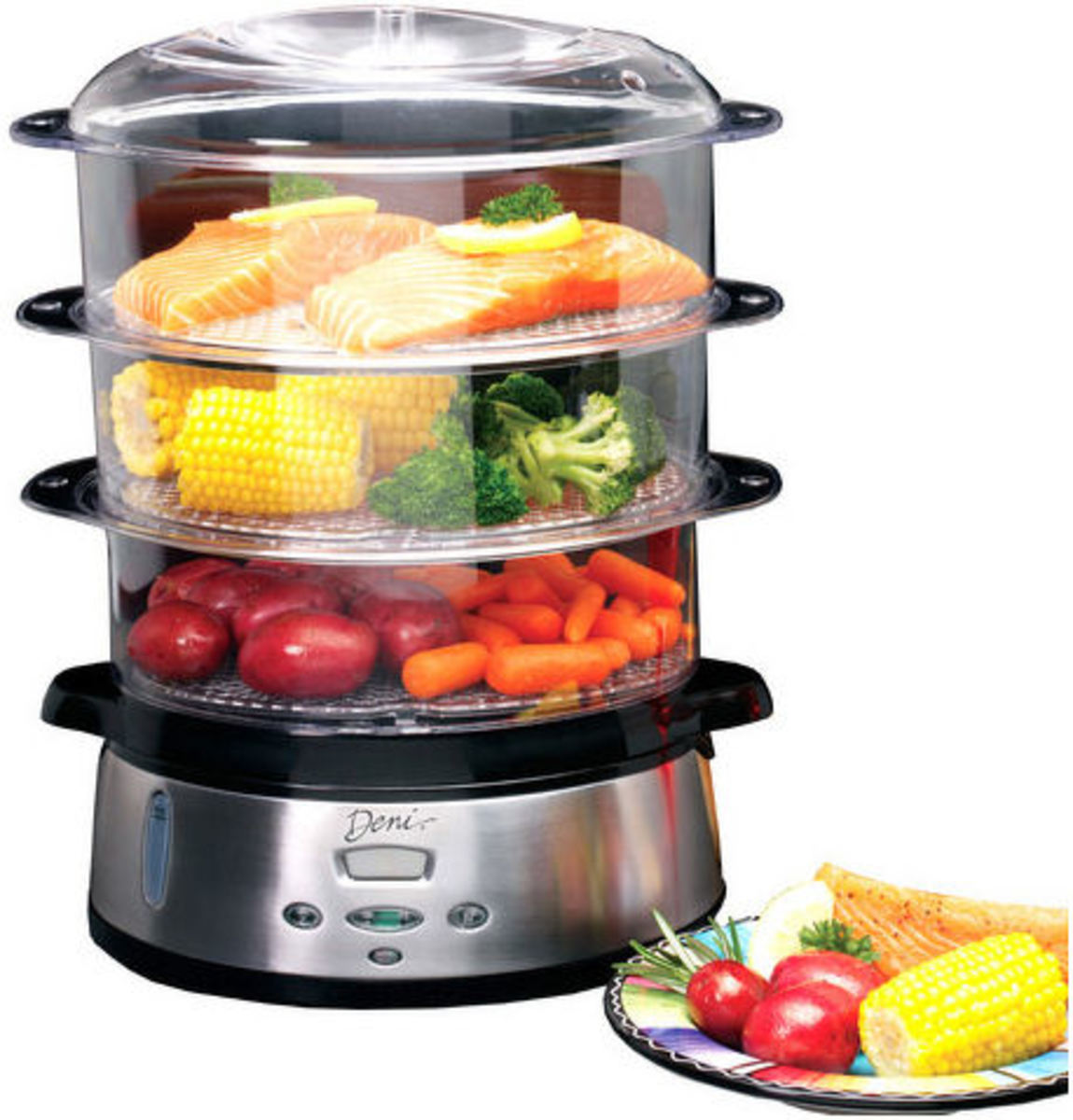Healthy Cooking Oils
The Most Healthy Cooking Oils
So what are the most healthy cooking oils? The answer might surprise you. Keep in mind that there are many kinds of cooking oils to choose from and each has its own unique taste and also has its own individual cooking properties.
To understand about cooking oils, you have to know a little bit about the oils themselves and the factors that make them good or bad - health-wise and cooking-wise. That might seem a little confusing but consider these factoids.
- Not all oils are created equally
- They all have a different smoking point (more on this in a second)
- Each oil has different kinds of fat - usually good and bad
- Last but not least, each usually has a very distinct flavor

Personally, I think just as in many facets of life, selecting an oil to cook with should be a matter of using what is most nutritious while being fairly economical, using what you have on hand, and matching the oil to the dish you're using it in. That seems the wisest course of action, however, that said, there are some good rules of thumb to know about each oil. There are some oils that are more heart healthy for example (which you should use more of) and some which are not as healthy (and should be used sparingly).
What are heart-healthy cooking oils?
Heart-healthy oils recommended by most physicians are those derived from plant sources. They are also those that are the least processed or refined. If you think about it, anything refined is going to be losing nutrients. Oils are really no different.
They also have less saturated fats and should be used as a substitute for those in your diet. The best oils are made up mostly of monounsatured fats. It's also important to note that by processing, oils become higher in saturated fats, so always try to find oils that are minimally processed.
Most medical professionals recommend 2 oils in particular as the most healthy cooking oils. These are olive oil and canola oil. However, the story goes a bit deeper than that. There are olive oils and there are olive oils for instance. Knowing what to look for will help you decide what your taste buds prefer and also what your pocketbook can afford.
Before we look at some of the different types of oils (and even types of oils within the same category), let's answer the burning question.
What is the smoke point for oil and what does it have to do with health?
The smoke point for any oil is the exact point at which it starts to smoke. We've all seen this happen when we take our eyes off the skillet that we were planning on using for a stir fry or a pan fry, right? It's not a pretty sight - or smell.
However, much more important to know is that when oils reach the smoke point, they give off bad vibes. They give off loads of harmful toxins and things called free radicals. You don't want those in your system. They have been linked to many diseases and cancers.
The way to prevent this is to always use the right oil for the right job. Now you're getting the picture. Depending on the oil's fat content and other properties, each oil has its own unique smoke point so it should be used in the best situations to avoid hitting that smoke point while preserving its healthiest properties when it goes into your body.
Let's compare some oils and see how they shake out in terms of fat, smoke points and taste. We'll see which oils are best for which recipes.
Oils for Frying
Well, technically, fried foods aren't really that healthy for us. But there are some times when frying is going to be necessary. High temperatures require a special kind of oil that can withstand the heat. This also means using these oils for browning or searing anything. These oils have a very high smoke point.
- Almond oil - adds a distinctive nutty taste - low in saturated fat
- Avocado - this oil has a distinctive sweet aroma - fairly low in saturated fat
- Hazelnut - very bold, strong flavor - low in saturated fat
- Palm - distinct taste - extremely high in saturated fat
- Sunflower - high-oleic versions are best - fairly low in saturated fat
- Light olive oil - lighter in color not calories - fairly low in saturated fat
PST! If you want to eliminate some or all of the frying, use oil sprays such as canola or olive oil cooking spray. Cuts the fat and the calories.
Best Oils for Baking, Oven Foods & Stir Fry
When you are using oils in dishes that are baked, whether they are casseroles or cakes, you want an oil that is going to have a medium-high smoke point so that they will not release those unhealthy toxins. These same oils are also most favorable for dishes like stir fry where the heat is medium high but not in the frying range for heat.
- Canola - no real flavor - very low in saturated fat and has some omega-3's
- Grapeseed - not overpowering - pretty low in saturated fat - high in omega-6
- Macademia nut - very bold flavor - pretty low in saturated fat
- Extra virgin oil - best pick oil all around - pretty low in saturated fat
- Peanut - great for stir fry - pretty low in saturated fat
PST! Peanut and walnut oils seem to have the most danger for allergic reactions in anyone who has a nut allergy. Make sure to ask guests about nut allergies before using nut oils in preparing food.
Cooking Oils for Sautes, Sauces or Low Heat
The oils that are best when sauteing, using in sauces or baking at low temperatures are oils that have a medium smoke point. Try some of these choices for these situations. All are fairly low in saturated fats - in the 10-15% range - except coconut oil.
- Corn - has a lot of omega-6
- Hemp - contains omega-3's - must be stored in fridge
- Pumpkin seed - has omega 3's
- Sesame - nutty or rich flavor - must be stored in fridge
- Soybean - contains a lot of omega-6
- Walnut - lots of omega-3's and very low in saturated fat
- Coconut - very high in saturated fat at 92%!
Oils to Use in Uncooked Foods
These oils are used for marinades, dips or dressings. They are also used for things like Italian bread dipping sauce.
- Extra virgin olive oil - best pick oil and low in saturated fat
- Flaxseed - low in saturated fat and great for omega-3's
- Walnut - low in saturated fat and good for omega-3's
- Wheat germ - relatively low in saturated fat and great for omega-6 - store in fridge
PST! Use virgin or extra virgin olive oils when taste is of the essence. Use "regular" olive oil when cooking with it because it has a higher smoke point. You'll save a little dough in the process as virgin and extra virgin olive oils cost more than regular olive oil.
Healthy and Nutritious Oils
What have we learned then? Fat is fat, no matter what form it comes in. However, it has been proven that there are some fats that are better for us than others. The trick is knowing which oils are the best for what circumstance and at what point they break down and become unhealthy oils.
Exercising common sense and controlling portions is the key to managing any oils we use in food preparation and helps us further eliminate unhealthy eating habits. I've found very few situations where moderation isn't the best policy and it also applies to healthy cooking.
For instance, I use coconut oil knowing that it is very high in saturated fat. However, using 1/2 teaspoon of it to flavor something isn't going overboard and I can still indulge in a very flavorful oil. Coconut oil has much controversery surrounding it but many claim is has remarkable health benefits linked to it - such as improving your immune system, weight loss and anti-aging properties. While I would not endorse using it exclusively for cooking, I think adding a bit of it to your diet is not going to cause any harm.
As mainstays, I use primarily extra virgin olive oil, canola oil and walnut oil and walnut oil only for baking. I use coconut oil sparingly and every once in a while I splurge and use peanut oil for stir frys. However, I do find that extra virgin olive oil is good for just about everything I cook because it has a relatively calm smoke point. I use canola oil for anything I think olive oil might overpower in terms of being able to taste it.
Look for organic oils and oils that are minimally processed. Compare the saturated fat on the label between the more processed and the least processed. You will be amazed at how they differ. Anything that has been processed will always lose something in the translation so I opt for as much organic or unprocessed product as possible.
Remember that fat is still fat though and cutting back on oils is one thing recommended for heart-healthy eating. Steaming more, using cooking oil sprays, even cooking in parchment paper are all good ways to cut down on fat and use oils more sparingly.
At those times though when you need to use oil, remember these healthy cooking oils and let the smoke points and fat content be your guide to healthier cooking.










